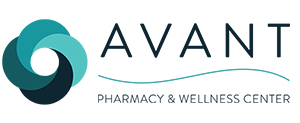The journey of becoming a mother is an event that is both exhilarating and transformative. One of the most important aspects of getting ready for pregnancy is making sure that you and your unborn child are getting all of the nutrients that are essential for healthy growth and development. Prenatal vitamins play a pivotal role here, but with so many different options available such as Thorne prenatal vitamins, it becomes quite difficult to select the appropriate one. Here are some suggestions from professionals to assist you in making the right choice.
Start Early
If you want to start taking prenatal vitamins, you shouldn’t wait until you become pregnant. To achieve the best possible results, you should begin taking them at least three months before you intend to conceive. This gives your body the opportunity to build up vital nutrient stores, which are essential for the development of the fetus, particularly in the early stages of pregnancy. Beginning the process at an early age lays a strong basis for both a healthy pregnancy and a successful conception.
Assess Your Personal Needs and Preferences
Your individual health needs and lifestyle preferences are key factors in choosing the right prenatal vitamin. Consider the following:
Allergies and Dietary Restrictions: Look for prenatal vitamins that are free from allergens such as gluten, dairy, or soy if you have specific sensitivities. You may consider Thorne prenatal vitamins as they are free from soy and gluten. However, do not forget to consult with a certified medical specialist.
Dietary Choices: If you follow a vegetarian or vegan diet, opt for prenatal vitamins that align with these preferences.
Medical Conditions: If you have conditions like anemia or have undergone bariatric surgery, you may need specific formulations.
Check the Serving Size
There is a wide variety of prenatal vitamins available, and some of them require taking multiple pills on a daily basis. Make sure that the serving size is appropriate for your lifestyle. If you find it difficult to remember many dosages, you should look for a once-daily option. Remember, consistency is of the utmost importance. If you skip doses, it might result in vitamin shortages.
Compare Costs and Value
Although cost should not be the only aspect that determines whether or not you purchase a prenatal vitamin, it is essential to locate a product that is within your budget without sacrificing quality. You may like Thorne prenatal vitamins but having an opinion from medical experts on the same is crucial.
The fact that some of the more expensive options come with a supply that lasts for two or three months makes them more cost-effective in the long run overall. Furthermore, some of them contain critical fatty acids such as DHA, which might potentially save you from having to purchase additional supplements from others.
Focus on Essential Nutrients
Certain nutrients are particularly important during pregnancy. When choosing a prenatal vitamin, ensure it contains the following key nutrients:
Folic Acid: Vital for preventing neural tube defects, folic acid is essential for fetal brain and spinal cord development. Aim for at least 600 mcg per day, though some experts recommend 800-1000 mcg.
Iron: Iron supports the development of the placenta and fetus, and helps prevent anemia. Look for a supplement that provides 27 mg of iron.
Calcium and Vitamin D: These nutrients are crucial for the development of the baby’s bones and teeth. Prenatal vitamins should contain about 1,000 mg of calcium and 600 IU of vitamin D.
Choline: Important for brain development, choline is often overlooked but essential. Aim for at least 450 mg per day.
DHA: This omega-3 fatty acid is crucial for brain and eye development. Some prenatal vitamins include DHA, but you might need an additional supplement.
Avoid Gummy Vitamins
Despite the fact that gummy vitamins are popular due to their flavor and the ease with which they can be consumed, they sometimes lack critical elements such as iron. If you find it difficult to swallow pills, discuss with your healthcare professional the possibility of substituting pills with alternatives that do not lack the amount of nutrients they contain.
Be Cautious with Added Herbs
Herbal components are included in several prenatal vitamins with the intention of alleviating pregnancy-related symptoms such as nausea. However, certain herbs may have adverse effects when interacting with medications or may not be safe to use during pregnancy. Before selecting a prenatal vitamin that contains herbs, you should always discuss your options with your healthcare professional. You might like Thorne prenatal vitamins as they come without additives.
Plan for Postpartum
Prenatal vitamins continue to be effective in the post-pregnancy period. In particular, if you are breastfeeding, continuing to take them for a period of six to twelve months after giving birth can assist in the replenishment of nutrient stores. Therefore, during the early stages of motherhood, this guarantees that both you and your baby will continue to receive the necessary amount of nutrition.
Consult with Your Healthcare Provider
The advice of your midwife, nutritionist, or physician is an invaluable resource when it comes to choosing the appropriate prenatal vitamin. On the basis of your health requirements, dietary limitations, and any preexisting medical concerns, they are able to make recommendations for particular brands. The monitoring of your nutritional levels and the adjustment of your supplementation as required can also be accomplished through routine checkups.
Prioritize a Balanced Diet
The consumption of prenatal vitamins such as Thorne prenatal vitamins is essential. However, they should be taken as a complement to a well-balanced diet that is abundant in lean proteins, whole grains, and fruits and vegetables. In comparison to supplements, foods that are high in nutrients offer a wide variety of vitamins, minerals, fiber, and phytonutrients that cannot be found in supplements alone.
Conclusion
When it comes to getting ready for a healthy pregnancy, one of the most important steps is selecting the appropriate prenatal vitamin. It is possible to find a prenatal vitamin that will support both you and your baby for the entirety of your pregnancy and beyond if you begin taking it at an early age, take into account your individual requirements, concentrate on vital nutrients, and talk with your healthcare professional. When it comes to a healthy journey to parenthood, it is important to keep in mind that a well-rounded strategy that includes a balanced diet and the appropriate supplements will set the stage.


